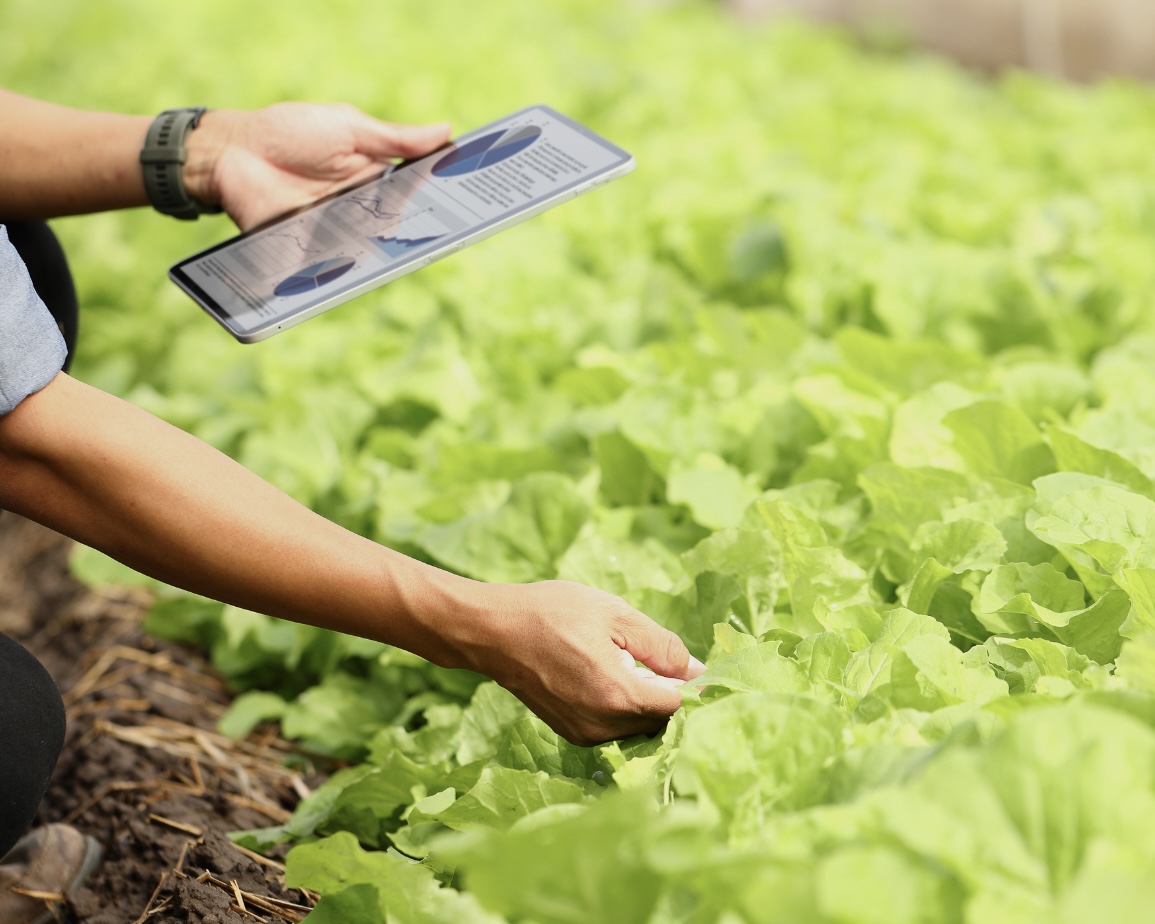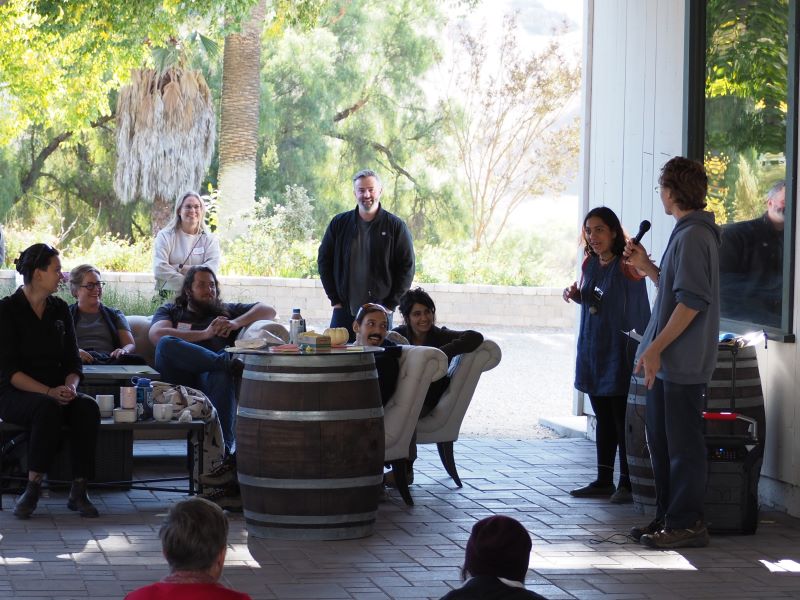Open ag tech
Building a collaborative vision for the future of agricultural technologyThe Path towards open agricultural technology
From farm management software to e-commerce platforms, digital tools are becoming essential for farmers and food producers. At OFN Canada, we believe these tools should serve the people who use them—not lock them into costly, closed systems. That’s why we’re working to ensure agricultural technology puts farmers’ needs and rights first.
Rethinking Ag Tech
Most agricultural technology today is owned by large private companies that control not only the software, but also the data it collects. This centralized, top-down model often leaves farmers with little say over how their information is used.
A growing movement is pushing back, charting a different course where farmers and communities build, govern, and benefit from their own digital infrastructure. OFN Canada is proud to be part of this movement—working with partners worldwide to shape an ecosystem of open agricultural technology that protects data sovereignty, fosters collaboration, and strengthens local food systems.
What do we mean by ‘open’?
Open Source
Software whose code is freely available to use, improve, and share. It encourages transparency, innovation, and collective progress.
Open Standards
Publicly available rules and formats that allow different technologies to work together. They prevent silos, encourage interoperability, and make innovation easier.
Data Sovereignty
The principle that farmers should control their own data—deciding how it is stored, shared, and applied. It ensures technology serves producers, not outside corporate or political interests.
Why open ag tech matters
Digital tools can help farms become more productive, profitable, and sustainable. But proprietary systems are often expensive and restrictive, putting small and mid-sized producers at a disadvantage.

Open technology offers a better path forward.
Collaboration – Open source invites farmers, developers, and researchers to co-create solutions that evolve quickly and meet real-world needs.
Customization – Tools can be adapted to specific farm conditions and local markets, giving producers flexibility and independence.
Access – Lower costs and fewer restrictions make open technologies accessible to farms of all sizes, levelling the playing field for smaller producers.
Data: Access vs. Control
The debate over farm data is not just about access; it’s about control. Open data improves transparency, but without protections, it risks exposing farmers to exploitation.
When farm-level data is openly accessible, it can create valuable opportunities for research, benchmarking, and innovation. But if that data is shared without clear governance or safeguards, that same data can also be misused— often to the detriment of the farmers who produce it.
What might that misuse look like in practice?
- Market manipulation: Large buyers using detailed production data to negotiate lower prices—knowing exactly when and where surpluses will occur.
- Unequal value capture: Corporations selling insights to insurers, input providers, or speculators—profiting from aggregated data without informing or compensating the farmers who generated it.
- Loss of autonomy: Farmers losing control over how their data is used—whether for corporate profit, surveillance, or policy decisions that affect them directly.
- Privacy concerns: Location-based or financial data tied to individual farms revealing sensitive details about a farm’s business operations and vulnerabilities.
In short, while “open data” increases transparency, it doesn’t guarantee fairness or farmer agency. Without strong protections, openness risks benefiting the most powerful actors in the supply chain—not the producers themselves. That’s why data sovereignty—giving farmers the authority and technical ability to decide how their data is shared and used—is essential for ensuring openness does not turn into exploitation.
Data sovereignty goes further than simply making agricultural data easy to access — ensuring that farmers themselves govern how their information is used, with clear consent and accountability.
Data sovereignty goes further than simply making agricultural data easy to access—ensuring that farmers themselves govern how their information is used, with clear consent and accountability.
Embedding data sovereignty within the broader food sovereignty movement ensures that digital agriculture evolves in ways that are farmer-led, equitable, and rooted in trust. OFN Canada has demonstrated this commitment by adopting OpenTEAM’s Ag Data Use Agreements, which provide a framework for responsible, farmer-governed data sharing.
Projects and Partnerships
OpenTEAM
A collaborative network advancing climate-smart agriculture and open, interoperable tools that keep farmers in control of their data.
D:Food/Web Initiative
An emerging coalition advancing food and data sovereignty through decentralized, community-driven technologies and cooperative data governance.

OFN Canada’s Director, David Thomas, at a Gathering for Agricultural Technology (GOAT) event
Gathering for Open Agricultural Technology (GOAT)
A global network of developers, farmers, and stakeholders advancing open source solutions for transparency, secure data sharing, and market access.
Data Food Consortium (DFC) Open Standard
A shared data language for short food supply chains, enabling seamless interoperability between farmers, marketplaces, and other supply chain actors.
A New Approach to Food Commerce in the Québec Region
A collaborative project building a shared, open-source web portal that empowers food hubs and producers to federate data and coordinate supply chains without sacrificing control of how their data is used, or who has access to it.
With these partnerships and projects, OFN Canada is helping lay the foundation for a farmer-led digital ecosystem— one that prioritizes collaboration, transparency, and sovereignty over lock-in, silos, and extraction.
Stay Informed
Be the first to know with updates on our projects and other OFN news.
